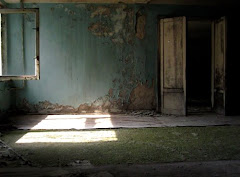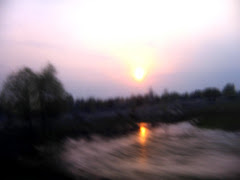Conferences – film – exhibition
The Rhône-Alpes region is organizing a conference on Chernobyl in Lyon, France, on May 15th and 16th 2008. The goal of the event is to enlighten the large audience about the aftermath of the catastrophe of Chernobyl and about the risks of the nuclear industry. Because Chernobyl is the permanent signal of a possible future of the environment and of the Humanity itself, it is essential that a Country which had invested so much in nuclear energy organizes the democratic conditions of a public debate on this issue.
To help us in our reflexion we have invited scientists, physicians, journalists, NGO’s representatives, sociologists, writers, artists and philosophers coming from different countries. We will consider first the aftermath of the Chernobyl catastrophe, then the different type of action coming from different organizations and we will question the becoming of techno scientific societies before considering the role of Art, Culture and Memory.
On the side of the conference there will be an Art exhibition showing the works of Guillaume Herbaut, photographer who made family portraits in Belarus and the paintings of Christophe Bisson who made a series based on the image of the sarcophagus.
9:00am Opening speech
9:30am Health effects of the catastrophe of Chernobyl
-Rose Goncharova (Belarus) Professor, Doctor of Sciences
Нead of Genetic Safety Laboratory. Institute of Genetics & Cytology, National Academy of Sciences of Belarus
-Vassili Nesterenko (Belarus), director of the Belarusian Independent Institute of "Belrad", created in 1989. He is a physicist from Belarus, former director of the Institut of Nuclear Energy at the National Academy of Sciences of Belarus. He has a diploma from the Bauman Moscow State Technical University. He works on the consequences of the Chernobyl disaster.
-Youri Bandazhevsky (Belarus), specialist of pathologic anatomy, ex Director of the State Institute of Gomel. Bandazhevsky and his wife Galina examined cardiograms of children and carried out series of autopsies in the forensic morgue in Gomel. The scientific results proved that, after the Chernobyl accident, cardiovascular system sickness rate increased by four times.
- Angelina Nyagu (Ukraine), President of the International Association “Physicians of Chernobyl”. She has an extensive research and publication record especially in the study of health and the psychological consequences after Chernobyl catastrophe, having written more than 300 journal articles, books and book chapters, work papers, and conference papers. She has been the Editor-in-chief of the International Journal of Radiation Medicine since 1999.
- Alexey Yablokov (Russia), Councillor to Russian Academy of Science, author of many books and papers on environment and radiobiology, including "Chernobyl Consequencies for people and nature" (2007).
-Michel Fernex (Swiss) Swiss medical doctor, from the Medical Faculty University of Basel. He is a member of Physicians for Social Responsibility and International Physicians for the Prevention of Nuclear War. He was a member of the Steering Committee on Tropical Diseases Research in the World Health Organization. He is also president of the organization Children of Chernobyl Belarus.
- Alison Katz Sociologist and psychologist, a long-time staff member at the World Health Organization and activist with the People’s Health Movement.
Moderator : Galia Ackerman (France), French historian and journalist, specialized in Russia and the post-Soviet era, she is a reporter for Radio France Internationale, an essayist and a literary translator. Trained as a historian (doctoral candidate at Paris-1), she is also a researcher studying the social aspects of the Chernobyl catastrophe. She was the curator of a major show, “Once upon a time… Chernobyl” at the Contemporary Culture Center of Barcelona (April-July, 2006)
2:00pm Actions of NGO
Speakers : - Jean-Claude Autret, (France), ACRO: Independent French organization which evaluate the level of radiation in the west of France. They work as well in Belarus in the contaminated area.
- Tatiana Kotlobay (Belarus), Pousse de vie: independent Belarus organization working with people living in the contaminated area.
- Roland Desbordes (France). CRIIRAD: Independent French organization founded in May 1986 to proceed to independent calculations of the level of contamination on the territory of France. They published maps of the real contamination in France.
-Maryvonne David-Jougneau (France). Comité Bandazhevsky. Philosopher and sociologist she is a member of the French association which supported Professor Bandazhevsky in his work.
- Vladimir Tchertkoff (France) Enfants de Tchernobyl Belarus. Co director of the independent Swiss organisation which helps children living in the contaminated area of Belarus.
Denis Fauconnier (France), Doctor in Corsica, he studied the effects of Chernobyl in Corsica.
Moderator: Guillaume Grandazzi (France), sociologist at the University in Caen. He specialized on the social effects of Chernobyl in Belarus.
5:00pm Screening of White Horse, a film by Christophe Bisson and Maryann De Leo
We follow Maxim back to his hometown, Pripyat, Ukraine, the dead city near by Chernobyl from where he and his family were evacuated just after the nuclear catastrophe in April 1986. We travel to a no man’s land, the Exclusion Zone and we arrive at his former apartment. Through the vanishing traces left in the empty space, Maxim remembers his lost childhood.
White horse was selected in the official competition in the Berlin Festival in 2008.
10:00am What is the future of techno scientific societies?
Speakers : -Mycle Schneider (France) After 20 years in office, Mycle Schneider left his position as Executive Director of WISE-Paris in April 2003 and now works as independent consultant on energy and nuclear policy. Since 2004 he is in charge of the Environment and Energy Strategies Lecture of the International Master of Science for Project Management for Environmental and Energy Engineering at the French Ecole des Mines in Nantes.
-Jean-Philippe Desbordes (France): French journalist. Author of Atomic Park, he focused on the links between nuclear industry and governments.
- Alain Gras (France) : French Philosopher who is one of the main thinker of the question of Modern Technology. He is a teacher of Socio-anthropology in Paris.
- Mykola Karpan (Ukraine) : Physicist. Member of the Board of the State Committee of Ukraine on nuclear regulation. . In 1986 he worked as a deputy chief engineer of the Chernobyl nuclear power plant on Science and Nuclear Safety. April 26, 1986 was at the station from 8 am to 24 pm, providing activities for the localization of the accident. Author of "Chernobyl. Revenge of the peaceful atom" (2005), which is called the most honest book on the Chernobyl disaster by power engineering specialists and journalists.
Moderator : Frederick Lemarchand (France). French sociologist. He’s teaching at University of Caen and he is been working for the last ten years as a sociologist on the effects of the catastrophe of Chernobyl on the population in Belarus and Ukraine. He has published les silences de Tchernobyl in 2006.
2:00pm Art, Culture and Memory.
Speakers : -Rostislav Omeliashko (Ukraine) Manager of the Scientific center of the post industrial catastrophes cultural inheritance conservatory, depending of the emergency situations minestry.
Alexander Sirota (Ukraine), Chief redactor of the web site pripyat.com
Ada Ackerman (France), Art history professor at the University of Paris-X who made the first study on the Art after Chernobyl.
Sergii Mirnyi (Ukraine), - Sergii Mirnyi (Ukraine) was an officer of Chernobyl radiation reconnaissance in 1986. He wrote "Chernobyl comedy" visual novel, documentary-comic novel "LIVE FORCES (Chernobyl tall-tales)", novella "Worse than radiation", and two award-winning screenplays. He authored a multidisciplinary book on the Chernobyl mitigation workers' health, a chapter on Chernobyl Disaster in the handbook on environmental history, and a paper on the essence and healing of post-disaster psychological trauma. Recently he designed and led educational trip "Places of Chernobyl glory" and field training on radiation and health "Inside Chernobyl: Radiation reconnaissance route" in the Chernobyl zone.
Moderator : Galia Ackerman (France), French historian and journalist, specialized in Russia and the post-Soviet era, she is a reporter for Radio France Internationale, an essayist and a literary translator. Trained as a historian (doctoral candidate at Paris-1), she is also a researcher studying the social aspects of the Chernobyl catastrophe. She was the curator of a major show, “Once upon a time… Chernobyl” at the Contemporary Culture Center of Barcelona (April-July, 2006).
Timing: 2h00
4:00pm Around Voices of Chernobyl by Svetlana Alexievitch
Reading of texts by an actor and meeting with the author.
Svetlana Alexievitch, born in 1948 in the Ukrainian village of Ivano-Frankovsk, is a world-renowned journalist whose writings, theatre pieces, and screenplays have been reproduced and translated in over twenty different countries. Her book Voices from Chernobyl: Chronicle of the Future, based on talks with hundreds of witnesses and victims of the 1986 nuclear catastrophe, contains both shocking evidence and profound analysis. For Alexievitch, Chernobyl is more than just an accident. It is a sign of how, with the radioactive catastrophe, an era of new dangers has dawned, an era which can only be measured in “astronomic time.” Chernobyl was a technical accident; an accident on the part of human understanding, but also more: a crisis in our world view.
Moderator: Bruno Boussagol (France), theater director who adapted Voices of Chernobyl.
6:00pm Screening of Un voyage (A trip), a film by Christophe Bisson
A film especially made for the conference and produced by the Conseil Régional Rhône-Alpes.
We follow a group of visitors going to the Chernobyl Zone. Each of them has different expectations. Evgueny, a former liquidator, is brought back there by his will to see again the “battle field” of the so called “war against the atom”; Olessia, a young Ukrainian girl, wants to see the “reality” of Chernobyl that has only existed in imagination for her; Sacha, a former resident of Pripyat, wants to go back to his hometown to find remains of his childhood.
Guillaume Herbaut: French photographer.
He is a founding member of l’Oeil public. Prize winner of the Fondation de France in 1999, he has dedicated himself to historical places, filled with symbols and memory. His work called Tchernobylsty, Kodak critics prize in 2001, was published in 2003, also winning the Fuji Book Price the following year.
Christophe Bisson: French painter.
After studying Philosophy at the University of Sorbonne, Paris, he dedicated himself to painting. Inspired by Anselm Kieffer he linked his work to the representation of History. In 2003 he made a series based on Chernobyl Sarcophagos which was shown at the Barcelona Contemporary Culture Center in an exhibition called Once upon a time Chernobyl. On April 2006 he showed at the Ukrainian National Library in Kiev, a photographic wall based on TV pictures of liquidator. This work was displayed after at Queen’s College, New York City Paris.

















Aucun commentaire:
Enregistrer un commentaire